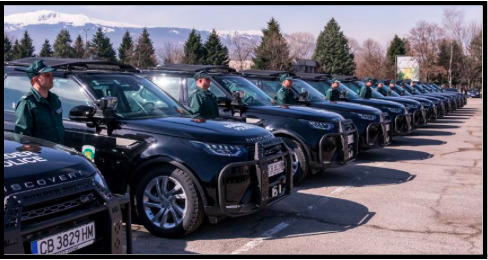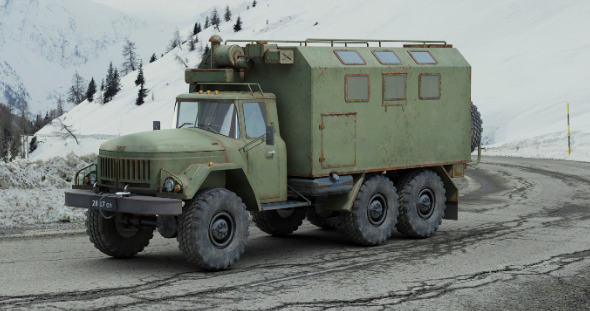This testimony recounts a violent pushback from Bulgaria, close to Malko Tarnovo, to Turkey, near Şükrüpaşa, taken from a 44 year old Syrian man who was part of the pushback group. He was part of a group of eight people – all Syrian, aged between 11-45 years old, including one woman, who was his wife and his 11-year old child. This was his 9th time being pushed back – three being from Greece to Turkey and six from Bulgaria to Turkey.
The group crossed the border from Turkey to Bulgaria near the village of Hamzabeyli on the 19th of March at approximately 5:50 in the afternoon.
After crossing, recounted the respondent, the transit group walked for six continuous hours, taking only a few short rests – totalling about 15 minutes, “The road was exhausting and I had to carry my kid and my wife. And the men were walking fast.”
At about two a.m. that morning, the group arrived next to what was referred to as a “dam”, and decided to rest there for the night. The area was completely wooded and the respondent does not recall seeing any buildings nearby. It was at this point that the transit group was reportedly apprehended between four and five a.m.
The respondent described how five uniformed men wearing sacramento green jackets with border police written on the back and sage green trousers surrounded them in the middle of the night. He further described a logo on the arm of the jackets, but could not recall exactly what it was; one of the officers were wearing balaclavas and there were no flags identified on the uniforms.
The men were all armed with a firearm identified by the respondent as as an “old Russian gun”, and he subsequently explained that three of these men held the firearms up to the faces of some members of the group to stop them from moving or running at the time of apprehension.
The respondent recounted that during the apprehension, while it was dark and there were no sources of light except for the torches held by the uniformed men, the uniformed men began screaming at the group in Bulgarian (which no one in the group could understand), raising firearms to their faces, and forcing them to raise their hands in the air.
The respondent explained that one of these men kicked him in the chest, in front of his child, as well as kicking all the other members of the group.; only his wife and child were not kicked.
Then, one of these men reportedly started speaking English and Turkish to the group – asking them where they were from. The group did not reply, “We were so afraid to talk… We could barely breathe”.
At this point, while none of their documents were asked for or checked, the group was searched. As they were being frisked, recalled the respondent, another uniformed man asked the group if they had money or phones and then brought a bag and told them to put all the phones and money into the bag.
The members also had to remove their jackets and shoes and give them to the officers. According to the respondent, his wife was not searched – but also had her phone, jacket, and shoes taken. They did not return any of the belongings taken from group members to anyone in the group, he explained.
As the uniformed men did not have their vehicles close by, so the group was reportedly forced to walk to where they had parked – approximately 5 minutes away. “I had to carry my son because they took his shoes but the men wearing sacramento green hit me on my back with a plastic baton and told me let him [my son] walk”, recounted the respondent.
When they arrived to where the vehicles were parked, they were forced to sit down on the ground, recalled the respondent, and were asked some questions: where they were from, how they came, and where we are going. They were spoken to in English and Turkish.
The respondent explained that they answered truthfully – he was able to communicate and speak a bit of English and Turkish well. He explained that the group wanted to go to a camp, and wanted to claim asylum. One of the uniformed men said “Europe”, and then kicked him on the shoulder. The group was made to sit and wait for about 30 minutes.
When asked to describe the vehicles, the respondent said there were two separate cars; one was black, with “border police” written in white on the front in big capital letters, and with a white logo on the side, identified by the respondent as the vehicle illustrated in same as Image 1; and the car was a green jeep with black windows, and it had Bulgarian writing on the side. The respondent could did not identify the license plates as he was not able to get a clear view of them.

After 30 minutes, a military truck appeared into which the group was loaded and reportedly transported back to the border. The respondent explained it was a “zil 131 green locked truck” that you could not see out of from inside, and that was not able to see if there was anything written on it or not. The respondent identified the vehicle as the one depicted in Image 2.

Driving this vehicle was a uniformed man wearing camouflage green which a Bulgarian flag on the arm of his sleeve, described the respondent. There was no one else in the vehicle except for the original transit group. The trunk measured about 3 by 2 metres inside, identified the respondent, and the driving was described as relatively normal, which made the group think that they were really being taken to a camp, “we kept that hope always”, explained the respondent.
The respondent and the transit group were driven for about reportedly 40 minutes but was not able to recall their surrounding because they were prevented from seeing outside.
They arrived at the Bulgarian-Turkish border, near the fence at about seven a.m. The respondent identified the area they stopped in to be a forest, with a fence, a gate, and an unpaved road. There was reportedly no one else in the area at the time of the pushback.
According to the respondent, as the group were unloaded from the truck, the uniformed driver opened the back doors while holding a big firearm pointed at at the group and told them to get out, “go back to Turkey” and “go go go!” he said in Turkish. Then the whole group was reportedly pushed back through the “gate” in the fence.
“we were afraid that he [the man with the gun] shot us with the gun when we were out of the trunk” explained the respondent.
